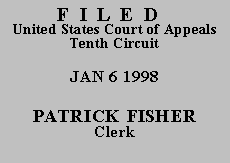

| JOSEPH N. HALL, | |
| Petitioner - Appellant, | |
| v. | |
| A. M. FLOWERS; K. REID; J. M. WILNER; LIEUTENANT PHEMIESTER; and MR. CROOK, | |
| Respondents - Appellees. |
Petitioner-Appellant Joseph N. Hall, Jr., a federal prisoner, filed a pro se petition for a writ of habeas corpus, 28 U.S.C. § 2241, in the Western District of Oklahoma. The magistrate judge directed Appellant to file the petition on the appropriate form for habeas corpus petitions. According to Appellant, he believed his petition need not be written on the form as long as it was substantially in the form of the model. Appellant states that he also believed the judge provided the form because his petition was hand-written and therefore illegible to the court. When Appellant typed his original petition and resubmitted it to the court, the district court dismissed the petition without prejudice for failure to substantially comply with the form provided.
Appellant indicates that he had trouble using the form because the questions were not "specific." We believe that one possible reason for his difficulty is that Appellant is not actually seeking habeas relief. He is bringing a civil claim. Habeas petitions are limited to attacks upon the validity, execution, or duration of confinement. See Bradshaw v. Story, 86 F.3d 164, 166 (10th Cir. 1996); Bradenburg v. Beaman, 632 F.2d 120, 122 (10th Cir. 1980). From the record and Appellant's brief, it appears to us that Appellant is only challenging the adequacy of the library facilities; he is attacking a condition of confinement rather than the fact or duration of his confinement. Cf. McIntosh v. United States Parole Comm'n, 115 F.3d 809, 811-12 (10th Cir. 1997) (outlining distinctions between condition of confinement claims which are brought under civil rights laws and claims appropriately brought through habeas corpus proceedings). Such a claim is not cognizable as a habeas claim but should be brought through a civil action. Cf. Bradenburg, 632 F.2d at 122 (implying habeas corpus is an inappropriate jurisdictional basis for an action seeking access to an adequate law library).
Nevertheless, pro se pleadings are to be liberally construed. See Haines v. Kerner, 404 U.S. 519, 520 (1972). Therefore, Appellant's petition challenging a condition of confinement should have been construed as a complaint under 42 U.S.C. § 1983. See Wilwording v. Swenson, 404 U.S. 249, 251 (1971) (per curiam) (construing habeas claims as section 1983 claims). Appellant's allegations are sufficient to state a claim that the inadequacy of the library facilities amount to denial of his constitutional right of access to the courts. We therefore remand with directions to the district court to allow Appellant to raise a civil action concerning the conditions of the library.
We grant Appellant a certificate of appealability, and we grant his motion for leave to proceed in forma pauperis. Since this does not appear to be a habeas corpus proceeding, the fee payment provisions under 28 U.S.C. § 1915(b) do apply, and we deny Appellant's request for reimbursement of the $23.37 initial partial filing fee he paid on July 17, 1997. We VACATE the district court's order of dismissal and REMAND for consideration of Appellant's claim as a civil action.
ENTERED FOR THE COURT
Monroe G. McKay
Circuit Judge
*. This order and judgment is not binding precedent, except under the doctrines of law of the case, res judicata, and collateral estoppel. The court generally disfavors the citation of orders and judgments; nevertheless, an order and judgment may be cited under the terms and conditions of 10th Cir. R. 36.3.